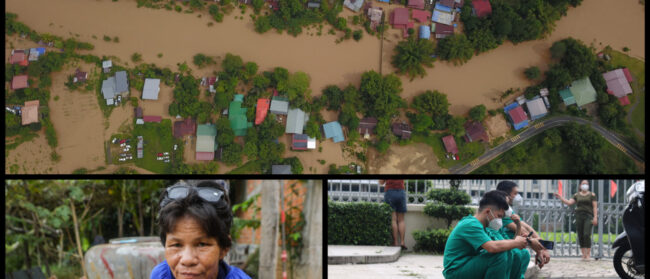Hello readers! This week, the Globe joined other media outlets in highlighting International Day to End Impunity for Crimes Against Journalists on 2 November, though I can’t say there were many regional governments joining us.
To highlight ongoing threats, the Committee to Protect Journalists published its Global Impunity Index ranking the countries where killers of journalists are least likely to be convicted. While there’s stiff competition for the top ten slots, the Philippines took number seven, and with good reason.
Last week, Filipino reporter Orlando Dinoy was shot six times in his home, the 21st journalist murdered since president Rodrigo Duterte came to power in 2016, according to the National Union of Journalists of the Philippines. Based on global trends, it’s unlikely his killer will be brought to account. As former Vietnam-based BBC reporter Bill Hayton notes in his powerful Globe op-ed, the vast majority of journalist murders around the world never result in prosecution.
Across Southeast Asia, journalists are being silenced in other, state-sanctioned ways. Over in Vietnam, five independent journalists recently received prison sentences totalling more than 14 years for producing articles considered slanderous of the government, part of an ongoing crackdown on perceived critics. Meanwhile, US journalist Danny Fenster, who has been imprisoned in Myanmar for more than five months, was denied bail and slapped with additional charges this week. He is one of at least 100 journalists detained since the military junta’s coup in February, CNN reported.
With limited government will to protect journalists, press and human rights groups have stepped up attempts to bring grassroots justice and accountability through the recently founded People’s Tribunal on the Murder of Journalists. While lacking real power to actually prosecute anyone, the tribunal opened its first session in the Hague this week, hearing testimony from a range of witnesses including new Nobel laureate Maria Ressa, one of the founders of Filipino investigative news organisation Rappler.
The tribunal will gather evidence in cases of slain journalists worldwide in an effort to provide greater visibility and spur action from formal legal authorities. The tribunal’s work is meant to increase awareness of these cases, grounded in credible testimony and rigorously evaluated evidence to enter the public record, as a step toward ending a status quo of impunity for those who commit acts of violence against journalists.
The initiative is an offshoot of the Permanent Peoples’ Tribunal (PPT) started in 1979, a larger effort to investigate and raise the visibility of human rights abuses ignored by international law. The PPT grew out of the Russell Tribunals, a grassroots movement led by philosopher Bertrand Russell to hold the US accountable for war crimes and the consequences of its military intervention in Vietnam.
Ending violence against journalists will be extremely difficult and the tribunal’s hearings at the Hague will continue into next year. Fortunately, at the Globe we are able to pursue our work as independent journalists in relative safety, beginning with our leading feature this week by yours truly on the emergence of cashew planting in Cambodia.
Before the cashew became a crop celebres for Northeast Cambodia, many indigenous elders had never heard of the plant. Borin Sopheavuthtey and I traveled to Ratanakiri province and spoke with some of the first people to grow cashews in the 1990s, tracing how the cash crop represented radical transformations in the regional economy and culture as globalism entered the Kingdom.
Writer Esther Vincent Xueming discusses Making Kin, a new collection of personal essays from Singapore, in an interview with Globe editor Amanda Oon and reporter Weilee Yap. The ecofeminist essays consider concepts of home, family and kinship in a divided, crisis-stricken world and how these changing narratives are shaping Singaporean literature.
The recent death of Filipino reporter and radio host Renante Cortes highlights the peril faced by journalists across Southeast Asia as the UN marks another International Day to End Impunity for Crimes Against Journalists, writes Bill Hayton, a former BBC reporter in Vietnam. The majority of violent deaths of journalists worldwide are not prosecuted and there appears to be little will from governments to fix the problem.
Cambodia’s media literacy training for high school students has been a boon, yet it reflects the urgent need to prepare young people across Southeast Asia to become more savvy consumers of online information, writes Sek Sophal, a researcher at the Center for Democracy Promotion at Ritsumeikan Asia Pacific University in Japan.
CEO Stephan Veyret of sporting goods retailer Decathlon Singapore speaks with Amanda Oon about building a sustainable, socially conscious business and how commerce has evolved in Singapore.


